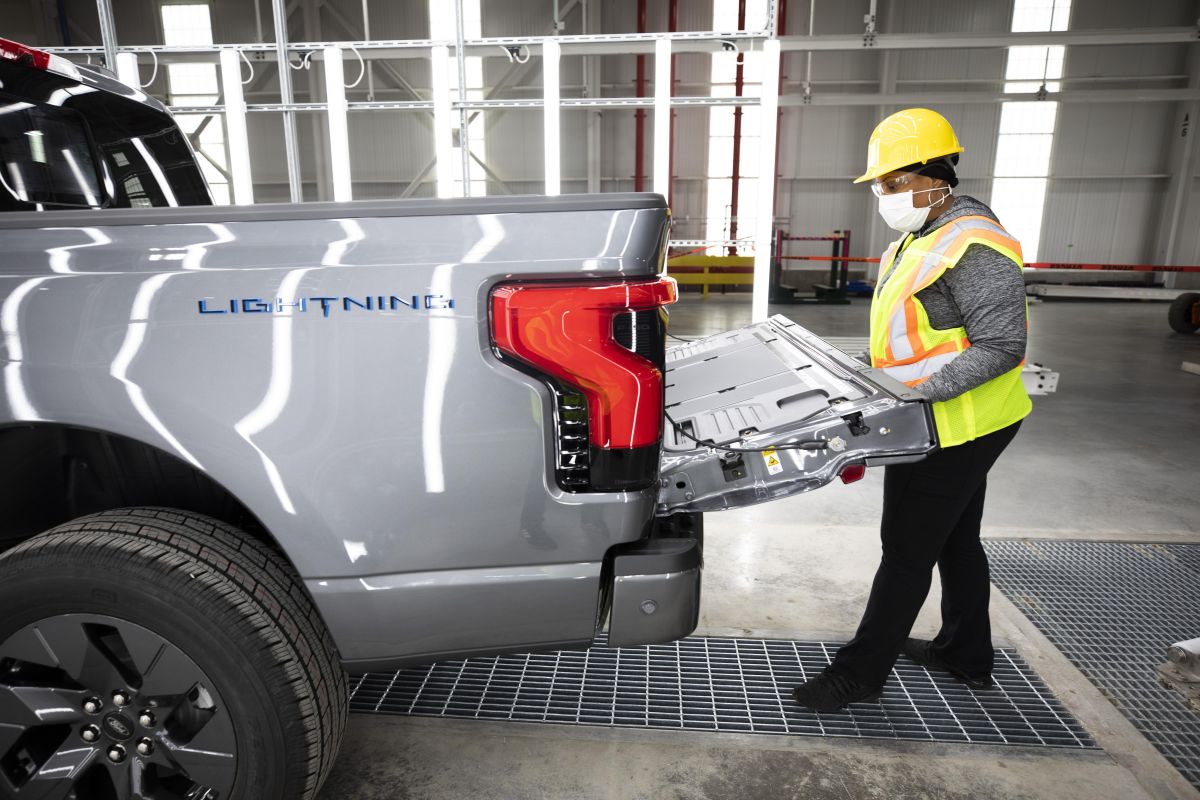GM CEO Mary Barra and Ford CEO Jim Farley both recently expressed confidence in working with President-elect Donald Trump’s administration.
Speaking Dec. 11 at an Automotive Press Association event, Barra highlighted shared goals like a robust economy and strong manufacturing base. However, potential policy changes, including the repeal of the $7,500 federal tax credit for EVs, could pose challenges for GM as it pursues an all-electric lineup by 2035.
Farley spoke with reporters during a Ford press event at Michigan Central Station in Detroit on Dec. 9, where he said the automaker would be able to adapt to those potential policy shifts, citing Ford's presence in U.S. manufacturing and its growing success in the EV market.
“We’re pretty experienced with policy change after 120 years,” Farley said.
Possible Policy Changes
"The tax credit is driving EV demand, and if it is taken away, obviously, it will impact profitability," Barra said. Still, she expressed optimism, saying, "I think we’re very goal-aligned. We want a strong economy. We want a strong manufacturing base in this country."
Barra, who previously served on Trump’s economic policy advisory team during his first term, noted that Trump "listens very intently" to industry input. She also emphasized GM's proactive approach, preparing for various scenarios as policies evolve.
If EV tax credits are repealed, Barra affirmed that GM will intensify efforts to make its EV lineup profitable. The company projects its EV losses will decrease by $2 billion to $4 billion in 2025. "If [tax credits] are removed, it’s additional work we have to do. But it’s not changing our plan to do it quickly," she said.
Ford has also implemented strategies to ensure its EV lineup remains competitive, including price adjustments and collaboration with dealers to increase emphasis on electric models. The company is targeting significant milestones for its EV lineup through 2027.
Farley addressed recent comments by Tesla CEO Elon Musk, a close Trump advisor, about the future of EVs. Musk recently claimed that “99% of cars will be electric and autonomous in the future,” suggesting gasoline-powered vehicles will become niche products.
When asked about Musk’s potential role in preserving the $7,500 EV rebate for consumers, Farley stated, “I don’t know how to handicap that. We’re just focusing on us.”
Barra addressed Trump's proposed tariffs on goods made in Mexico and Canada, stating they "could have a very substantial impact" but acknowledging such measures are part of broader trade negotiations.
Farley acknowledged the possibility of changes in tariffs, emissions regulations and tax incentives for EVs. He declined to confirm whether he or other Ford executives have recently engaged with Trump or his advisors but expressed confidence that Ford’s strong economic profile would be influential.
“Ford’s employment profile and importance in the U.S. economy and manufacturing -- you can imagine the administration will be very interested in Ford’s point of view,” Farley said.
Recent Strategic Shifts
Barra described 2024 as a transformative year for GM, highlighting a doubling of EV sales and forecasting another record-breaking quarter. In recent months, GM has made significant moves to strengthen its financial position, including selling back its investment in a battery cell plant for $1 billion and restructuring its Chinese operations.
Most notably, GM recently shifted its focus away from Cruise’s robotaxi fleet development, opting instead to integrate autonomous driving technology into personal vehicles. "We’re no longer approaching the market as a legacy automaker doing the same things we always did," Barra explained. "We’re a company that’s transforming."
Looking Ahead
As GM faces evolving industry challenges and opportunities, Barra expressed confidence in the company’s ability to adapt and innovate. "We’re going to be around for the next 100 years," she said, reinforcing GM’s commitment to leading in both traditional and emerging automotive sectors.
Farley highlighted Ford’s leading role in the U.S. automotive industry, pointing to its status as the largest employer among automakers in the country, the highest producer of U.S.-made vehicles, and the leading exporter of vehicles from the U.S.
This leadership is bolstered by Ford’s dual commitment to hybrid and electric vehicles. About 14% of Ford’s U.S. sales in November were hybrids or EVs, and nearly 20% of the company’s global lineup now consists of electrified models.
“What I’m excited about is working with the administration to make sure that we’re rewarded for our commitment to America and Michigan,” Farley said.












